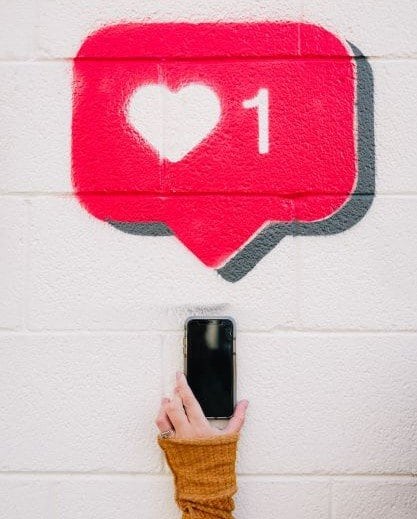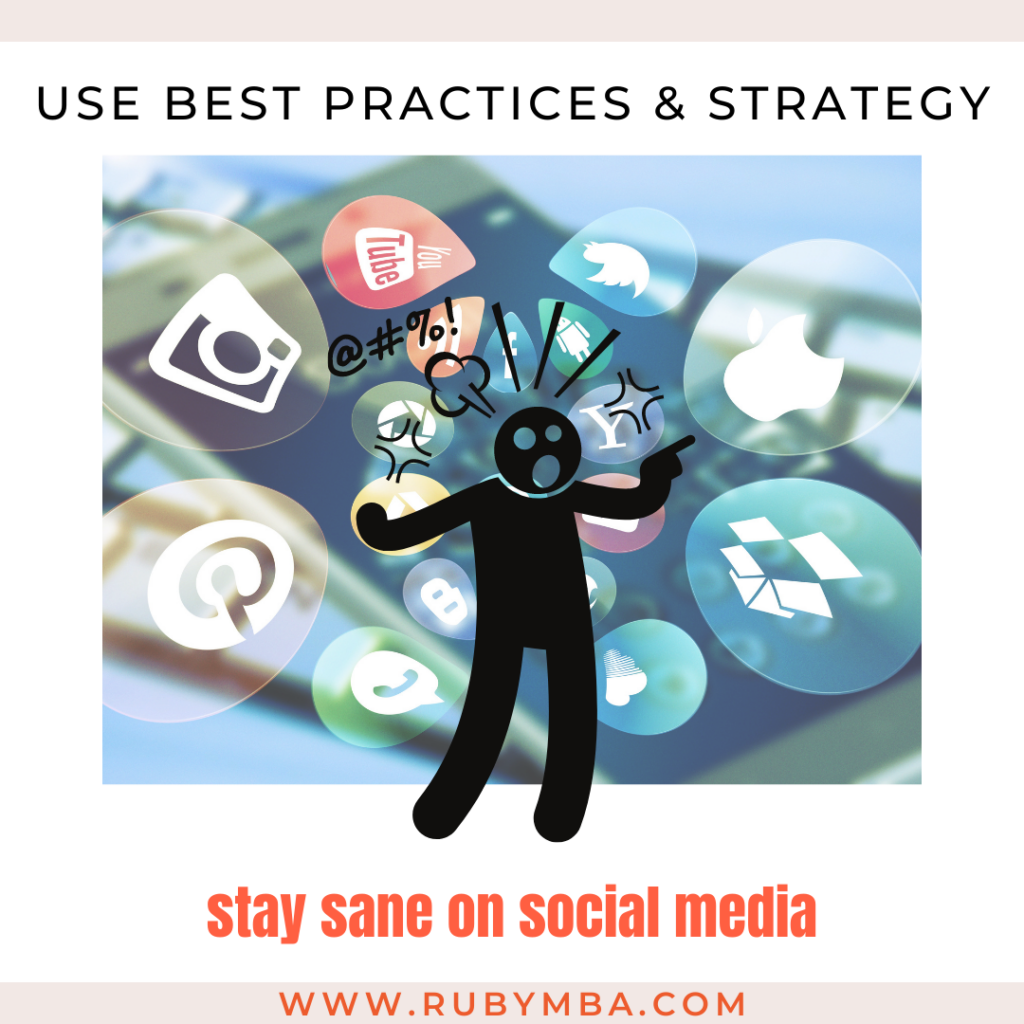Which is the right business social media platform for you?
Social media is defined by its very name as a collective platform for keeping in touch. In fact, the main reason that 66.1% of South Africa’s internet users say that they use social media, is to keep in touch with friends and family. This is compared to 44.8% of South Africa’s internet users who are looking for things to do or buy.
If you consider that there are over 28 million users of social media in South Africa, there is still a hefty portion of social media users looking to buy something, making for a LOT of potential customers (approximately 12.5 million). Used correctly, social media can be a profitable marketing channel for small businesses.
It is an excellent way to build brand awareness, connect with existing customers, generate new leads, gain significant insights into your brand, and create audience and engagement opportunities with customers while reaching your customers in a personalized way.
The question is which social media platform (or platforms) is right for your business? Let’s take a look at the pros and cons of some of South Africa’s favourite social media platforms for business.
What are the different categories of social media?
Before delving into each platform, it is helpful to understand that social media, also known as networks, is broken down into different categories. Many platforms could fit into multiple categories, but for our purposes, we will focus on the four main categories:
-
Social networks are used to connect users with one another and share information, thoughts, ideas, and interests. The focus of these networks is usually on the user. User profiles help participants identify other users with common interests or concerns. Facebook is the most popular and well-known example of a social network, as well as Twitter. A more professional social network is LinkedIn.
-
As opposed to social networks, which specialize in letting users share and exchange raw thoughts and ideas, media networks focus is on content, such as photographs and videos. For example, on YouTube, interaction is around videos that users create. Other media-sharing networks are TikTok and Instagram. Users can interact by “liking” or commenting on posts. They may even choose to “subscribe” or “follow” the creator, so that new uploads from that creator will appear in their feed.
-
The focus of this type of social network is to encourage in-depth discussion among users, for example, Reddit. Users leave detailed responses in the comment section of a post, to which other users can respond directly, allowing for conversations to grow and develop organically. Communities often form around select topics. Blogging sites like WordPress (and the platform on which this article is posted) can also be included in the discussion network category, though some would consider blogging its own type of social media.
-
A popular example of a review network is TripAdvisor. With these networks, the focus is on a review, usually of a product or service. Users can interact directly with those leaving reviews, as can the businesses being reviewed.
Not every social media platform will be a fit for your business. The aim is to reach and engage with your ideal customer, so invest your efforts in finding where your ideal customer is playing on social media.
Best social media platforms for small businesses in South Africa
Whatsapp is both the most favoured and most used social media platform in South Africa. With such great reach, it’s an excellent platform to gain traction for your business. Its parent company Meta (aka Facebook) does not allow ad placements on Whatsapp. However, what the platform is great for is customer service. Through its WhatsApp Business option, small businesses can reply and chat to customers and its ‘Catalog’ feature allows the showcasing of products and in-app browsing.

Facebook is the most used social media platform in the world, by a long, long way. Every small business should have a Facebook page. Facebook can be used to share everything from photos to important company updates. With a business account, you have access to powerful advertising tools and in-depth analytics. Business pages also have a lot of customization options. You can use Facebook to highlight information such as your contact information, hours of operation, and the products and services you offer.

Instagram is a visual platform based entirely on photo and video posts. From Instagram Live to Instagram Stories, there is no shortage of tools businesses can use to promote their services and products on the site. More artistic niches tend to excel on Instagram, so it may not be the best fit for you if your business does not have strong visual content to share.

Twitter is great for short updates, engaging with followers, and sharing links to blog posts. On Twitter, you can share short tweets (up to 240 characters), videos, images, links, polls, and more. It’s also easy to interact with your audience on this platform by mentioning users in your posts along with liking and retweeting tweets.
This may not be the social media platform for your business if it is highly visual or does not have a strong or unique on-brand voice. Many businesses use this platform to handle customer service because customers who are active on the platform will seek out companies to express concerns or share praise.
If you have interesting content and can voice that content in an engaging way, Twitter is a great tool for quickly spreading the word. Hashtags help boost posts, and if a user with a lot of followers retweets you, your content could go viral. But with Twitter, it’s important to find balance. Don’t just share your links or media; make sure you are also sharing a lot of interesting, relevant content from other Twitter users.

LinkedIn is the best platform for professional networking. It is a great place to find top talent, position yourself as an industry leader and promote your business.
LinkedIn is designed to be more professional than other social media platforms and is geared toward businesses and professionals. Users create profiles that are similar to resumes, and companies can create pages that showcase their business. Because LinkedIn is a professional platform, it’s the best place to post job openings and information about your company culture.
You can join industry-specific LinkedIn Groups to ask and answer questions, which can help you establish brand recognition, authority in your area of business and bring users to your company page and website. Like on Twitter, it is best to have a mix of original and shared content on your page.

Pinterest is a purely visually-oriented platform allowing users to save and display images or videos by “pinning” digital bulletin boards, which can be organized by category, e.g. a user might have a food board dedicated to pinning recipes. The platform also has a series of special types of pins called Rich Pins, which brands can use to add specific information to their pins, like product details and location maps. Pinterest is not the place to share information like your business hours.
Pinterest is best for niche businesses such as DIY projects, decor, fashion, exercise, beauty, photography, and food. That’s not to say that businesses outside of these categories can’t succeed on the platform, but it does make Pinterest an especially good marketing tool for businesses in those areas.

TikTok is a relatively new platform where users create and share short videos. TikTok is mostly popular with the infamously discerning Generation Z, so it can be difficult to strike the right tone to be successful as a business on TikTok. If you want to create a TikTok account, make sure you have a keen understanding of your brand and how that translates to TikTok specifically. Look at how other businesses are tackling it before you try it for yourself.
If you would like some really interesting insights into internet use and social media statistics in South Africa, have a read through the full Digital 2022: South Africa report from DataReportal (scroll down to the bottom of the page for the full report). For all the tea on social media and social media platforms, skip ahead to page 49 and onwards. It could help you make sense of which social media platform is right for your business.
Next week we will take a look at the benefits of using social media and best practices when using social media for small businesses.

If you would like some good and really interesting insights into internet use and social media statistics in South Africa, have a read through the full Digital 2022: South Africa report from DataReportal (scroll down to the bottom of the site page for the full report). For all the tea on social media and social media platforms, skip ahead to page 49 and onwards. It could help you make sense of which social media platform is right for your business.
Next week we will take a look at the benefits of using social media and best practices when using social media for small businesses.
P.S. Need help with your messaging?
This is what we do at RubyMBA. Our Lists, Launches, and Leverage 2022 programme is all about the deep dive into how to master your message. If you want to know more about our programme, email us at theteam@rubymba.com, or sign up for our free masterclass below.



